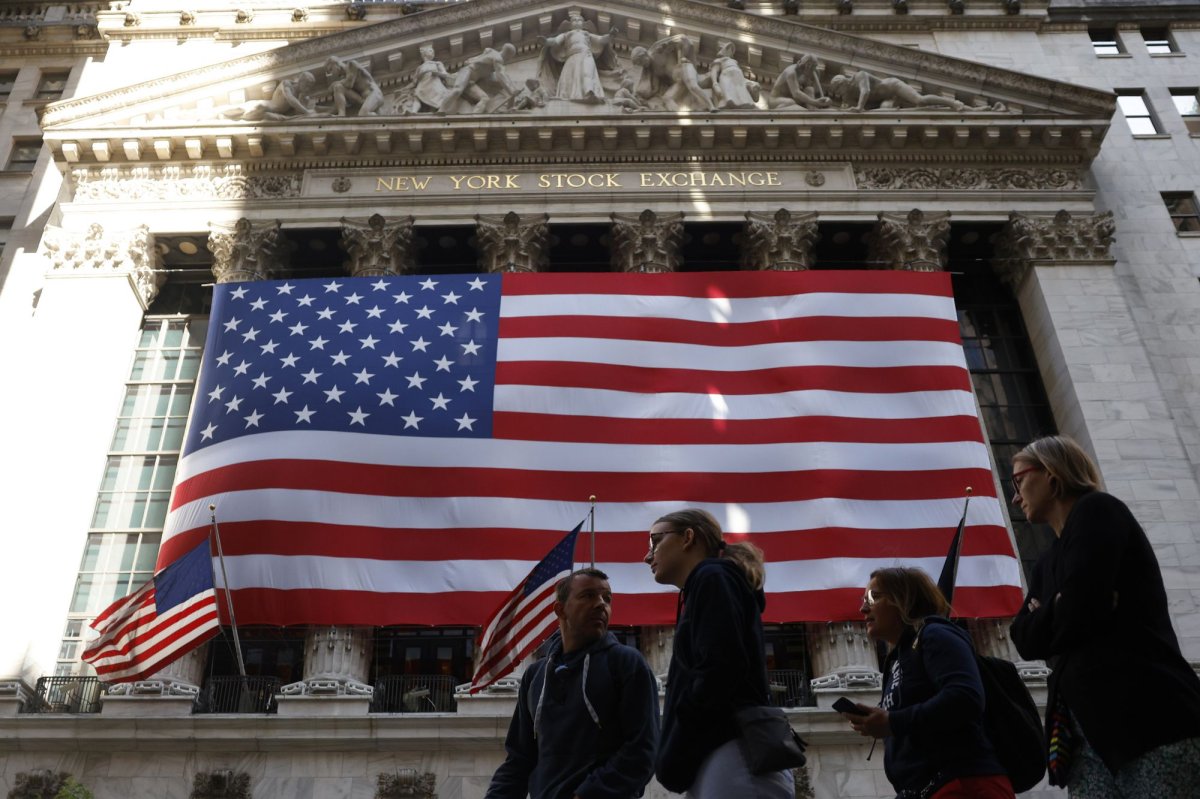Why wasn’t the Debt an issue when Trump was giving Free Money to rich people?
The simple fact of the matter is the debt ceiling is arbitrary, and a political tool to be brought out when convenient so Republicans can say, “We’re spending too much!” Yet as soon as they get into office, they cut taxes and increase spending. The thing is we have more than enough sovereign wealth to pay our debts, and will continue to do so as long as our GDP continues to grow. The debt ceiling is a straw man and the ceiling is made of glass.
We don’t have enough wealth to pay our debts, and haven’t in so long that I suspect all of our debtors have long since given up on being paid back.
The real issue is not so much the debt but rather revenue raising, the increasing debt is merely a symptom of the US’s inability to attract enough revenue (via taxes) to cover it’s spending. Decades of propaganda by the right (you could easily substitute Oligarchy here) and the slashing of taxes on wealthy individuals and corporations has created an unsustainable debt situation. This is despite the sovereign debt issue.
It’s not just lack of revenue. Spending has to stop too. The US is spending about 38% more than it takes in, and it’s growing.
Meh… or what exactly? What happens and when?
I see this number trotted out every election year, and everyone gets their panties in a bunch, but I can’t see what happens if we don’t fix it.
Eventually the interest in the debt will grow too large to service. The government will have to print more and more money leading to hyperinflation. The entire global economy will be impacted as faith in the dollar collapses. The global economy slows and eventually switches to trading in the Yuan. The US loses a ton of it’s soft power globally.
That sounds ominous. When does it happen? There must be a point at which it tips.
Once it gets this bad there are only two ways out. Its pretty interesting cause in the 1800s both France and England were in similar debt to income ratio situations as we are now due to war spending but took different paths to fix it.
England tightened spending and had almost a century of lower economic growth to get back to near net zero debt right before WWI. Took a really long time. Was also helped out by explosive population growth, which isn’t really an option for us at this point.
France didn’t cut spending as much, and as a result had such massive inflation that the nominal value of the debt was close to like 1/100th of the initial value, bringing it to near zero as well. This also had the effect of wiping out any wealth not tied to physical assets. So like any family that was wrapped up in bonds lost everything. This is probably what’s gonna happen to us
We have quite a while yet. We spend about 200 billion servicing the debt right now and have around 4.8 trillion in revenue.
The warning line is having a debt equal to your GDP. The US has a GDP of around 28 trillion but a debt of 34 trillion. So we are past that warning line, but by itself that doesn’t mean anything.
For other countries it would signal to banks and other countries that it might be a bad idea to loan to them, but the US has a kind of special status in the global economy and this hasn’t slowed down loaning so far.
so? wasnt a problem for rolling out that trillion dollar tax cut…
When has this ever mattered?
Some said once that debt is good
Edit: hello financial analysts
All I know is that for all of my 46 years, I’ve been told what the national debt is as if it is significant and it keeps going up and it doesn’t seem to have any effect on anything.
The significant thing, which is harder to gauge, is how much return the country gets on its borrowing. If you borrow $1B for some infrastructure project, to be paid back over 25 years, but over those 25 years the infrastructure project generates $1.5B in taxes, job opportunities, time saved, etc, and then it continues to generate more money even after the debt has been paid off, then taking on the debt was a good thing in the long run. Sure, the national debt went up, and generally owing money is seen as bad, but it was profitable overall and the country’s GDP maybe have increased at a higher rate than its debt over that period.
And it gets even more complex when you consider less tangible results like the happiness of the population. If the country breaks even on its borrowing but the population’s happiness is increased, I think most people would consider it a success, but it’s hard to measure that.
A lot of the people who get overly panicky about national debts don’t tend to understand them. They treat them like household budgets, or like businesses, where you absolutely need to balance your books every year or you’re in trouble. With national debts, as long as the country can keep paying back its lenders and as long as they continue to grow (economically), national debts aren’t that big a deal at all.
Generally, left-wing economics tends to lean towards borrowing as an investment into the future, and isn’t too concerned with the actual debt number increasing as long as things are improving at a good rate. Right-wing economics tends to lean towards being loud about the national debt increasing and lean towards austerity and other cuts in order to “balance the books”, often calling the left-wing approach “irresponsible”. Personally, if it’s not obvious, I favour the left-wing approach.
That’s pretty good insight laid out in a very clear to understand manner, do you have any recommendations for where I could read more about this?
Thanks, I’m glad you found it useful! Unfortunately, I don’t have any specific recommendations for further reading - it’s the sort of thing I’ve just picked up over the years of paying attention to politics and economics rather than from any specific sources.
However, after a quick search, the US Treasury actually has a pretty good page about it.
The key graph to look at on that page is the one that shows the debt to GDP ratio (which, as it explains, is the most useful way to measure debt because it shows the country’s ability to repay its loans). And you can see, despite the fact that Biden’s administration has hit the highest ever raw national debt number, they’ve actually done a pretty good job at stabilising this ratio after the disaster that was Trump’s term.
(To be fair to Trump, COVID was responsible for some of that big upwards spike. But you can see it was trending upwards - ie, bad - under Trump before COVID started.)
Which means that, yes, the national debt has continued to rise in real numbers under Biden, but the US economy has also been growing at a similar rate, meaning nothing’s got any worse in real terms.
The BBC also has a pretty good overview of national debt. It’s relating to the UK but the principles are still the same.
This is because it doesn’t really matter. We could just mint a few trillion dollar coins if we had to to make a payment on it. We probably would only get 1/2 the inflation we did coming out of the pandemic as a lot of that was geopolitics that’s already priced in now, though corporate greed is another matter. We also could just revert a bunch of the tax cuts from the last 20 years or so, and probably make a dent in the deficit if not get to a surplus again.
My limited understanding is that economists are divided around if too high a debt percentage is what led to Japan’s stagflation, but from what I’ve read the US had that since the 70s already in real wage terms, so would it actually be a change to most people? And it’s not like Japan is some failed hellscape - it’s a huge economy with a pretty decent standard of living from what I can tell.
I still maintain so much of this is driven by thinking there isn’t some limit here - like we talk about “tiny” GDP growth compared to developing economies without realizing that if you start at $1, it’s easy to have 500% growth in a year, but each year the absolute amount of growth needed to hit that percentage goes up. The US only managing to grow 1% on a what, 30 trillion GDP is actually 300 billion, which is a huge absolute amount. That’s like an entire Merck, Costco, or Adobe each year added enmasse.
He who goes out owing the most wins. Lived like a king and didn’t pay for a damn thing.
It matters when Republicans want to blame Democrats for something, especially when Republicans want to cut food and housing programs for poor people.
Republicans will always find a reason to blame Democrats.
oh, sure. this just happens o be one of their favorite go-tos.
All money is currently debt. Every dollar in existence is owed to someone at interest.
This is functionally the same as saying we have a lot of money.
Why don’t we just pin the debt on some guy and just kill him? Boom no more debt.
We don’t need to kill anyone. We can just do what rich people do and put all their debt into a private corporation so they don’t have to worry about it anymore.
Ah, the Christian approach.
FYI: “That guy” is (mostly) China.
Actually its mostly Japan these days
Who cares? Businesses get bailouts and foreign creditors get the threat of freedom.
Private savings in USD surpass $34 trillion
Do you think they get calls from collection agencies during dinner?
You get the spam Chinese phone calls to?
I wish I could go $34 trillion dollars in debt. Hell, I’d even settle for $1 trillion. That’s enough that it’s the bank’s problem, not mine.
Good time to print more dollars.










